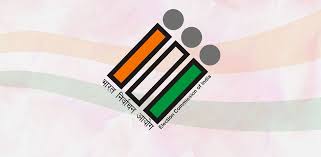
EC to SC: Published Draft Voter List Includes Missing Names After Bihar SIR

 :
| Updated On: 22-Aug-2025 @ 12:17 pm
:
| Updated On: 22-Aug-2025 @ 12:17 pmSHARE
On Thursday, the Election Commission of India (ECI) apprised the Supreme Court that it had published the list of individuals whose names were missing from the draft electoral rolls in Bihar after conducting the Special Intensive Revision (SIR) exercise. This development follows the directives issued by the apex court earlier in August, when concerns were raised about the transparency and integrity of the revision process.
The matter was initially brought before a bench comprising Justices Surya Kant and Joymalya Bagchi on August 14, during hearings on petitions that had challenged the SIR exercise. The petitioners had questioned the validity and fairness of the revision, arguing that many eligible voters risked being excluded from the draft electoral list. Responding to these concerns, the Supreme Court instructed the Election Commission to ensure that the list of names excluded from the electoral roll was made publicly accessible. This was aimed at enabling greater transparency and allowing affected citizens to understand the reasons for their exclusion.
Complying with the Supreme Court’s directive, the ECI submitted an application to the Court on Thursday, confirming that it had adhered to the order. It informed the Court that the booth-wise list of excluded names had been published on the official websites of all 38 District Election Officers (DEOs) across Bihar. The data covers approximately 65 lakh individuals whose names were missing from the draft electoral roll. Importantly, the published lists also specify the reasons for each exclusion.
The reasons broadly fall into three categories:
-
Death – Individuals who were found to be deceased were removed from the electoral rolls.
-
Shifting of ordinary residence – Names of people who had relocated from their registered constituency were excluded.
-
Duplicate entries – Cases where a person’s name appeared more than once in the electoral database were rectified by deletion.
By including the reasons for exclusion, the Election Commission has attempted to make the revision process more transparent and accountable, while also giving citizens clarity on why their names might have been left out. The decision to host the list on all DEO websites also ensures accessibility for the general public, reducing the likelihood of disenfranchisement due to lack of information.
The Supreme Court, while taking note of the compliance report, has scheduled the matter for further hearing on Friday. The upcoming hearing is expected to address the petitioners’ grievances more substantively, examining whether the ECI’s compliance fully satisfies the concerns that were raised earlier. The Court may also deliberate on possible remedies for individuals who find their names missing from the draft electoral roll despite being eligible voters.
This case underscores the critical importance of maintaining accuracy and transparency in the electoral rolls, especially in a populous and politically significant state like Bihar. With elections dependent on the inclusiveness of the voter lists, any large-scale exclusion—intentional or accidental—could potentially affect the democratic process. The figure of 65 lakh exclusions has already drawn attention to the scale of the exercise and the challenges inherent in keeping electoral records accurate.
In conclusion, the Election Commission has taken steps to comply with the Supreme Court’s order by publishing the booth-wise exclusion lists across Bihar’s DEO websites. The apex court will revisit the matter on Friday to further evaluate the EC’s compliance and decide on the next steps to ensure fairness and inclusiveness in the electoral process.